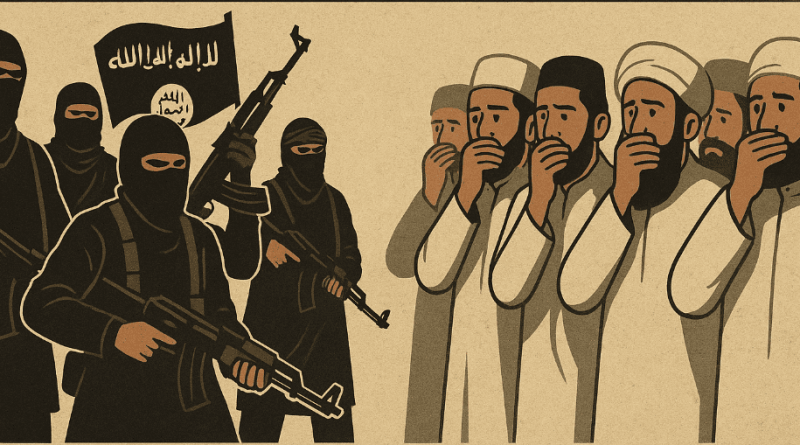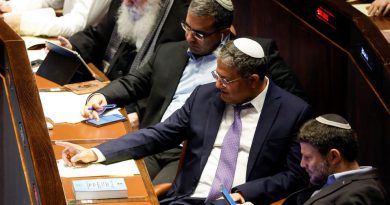OPINION: Islam’s Image Crisis—Radicals Are Vocal, Moderates Are Silent
Since the end of the Cold War, much of the Muslim world has framed terrorism carried out in Islam’s name as an “American-Zionist conspiracy.” This argument draws on the undeniable reality of U.S. imperialism in West Asia, from Washington’s support of the Mujahideen in Afghanistan in the 1980s to its disastrous interventions in Iraq and Afghanistan, which helped incubate groups like al-Qaeda and ISIS.
It is undeniable how American foreign policy not only created conditions for militant Islamism but at times directly facilitated its growth. Yet to reduce all Muslim terrorism to an American creation is dangerously simplistic. Many Jihadists act from their own interpretations of Islamic texts, local grievances, and visions of a divinely mandated order, not to serve what the left-liberal have been calling American Imperialism.
Muslims globally have worked hard to defend their religion against the stigma of terrorism, insisting that Islam teaches peace and condemns violence. But crucial questions remain unanswered, questions that the far-right in India exploits and is using to perpetuate misconceptions against Muslims. The community’s defensive posture often remains confined to echo chambers, leaving outsiders unconvinced.
Moreover, the demonization of Muslim identity in India is not simply the product of hatred for Islam as a religion; it also emerges from socio-political matters that are shown as a pattern of a global conspiracy. Yet Islamism cannot be understood merely as a reaction to deprivation, it derives itself from the interpretations of scripture that demand serious engagement.
This is where a major weakness lies. Muslims who commit acts of terror openly identify their violence with religion. If ordinary Muslims want to challenge them, they must engage with the ideological and theological claims rather than dismiss them as conspiracies against Islam.
A friend of mine, once an Islamist and now a humanist, recalls that when he quoted scripture to justify his radicalism and impending desire to kill Kafirs and make Allah’s word supreme, his parents simply said, “This is wrong,” without offering any substantive rebuttal from the Quran or Hadith.
Their inability to engage with the texts and his ideas and by extension the ideas of thousands of young muslims across the world, left him more convinced than before of his righteousness. This gap between religious conviction and theological illiteracy of ordinary Muslims is what Jihadists have been exploiting .
In India, this dynamic has produced troubling patterns. The 1993 Mumbai bombings, which killed 257 people and injured over 700, were often justified within sections of the Muslim community as “necessary retaliation” for the demolition of Babri Masjid and subsequent riots. Such selective justification creates a dangerous double standard: if killing innocents can be rationalized in one context, then why not in another? By this logic, pogroms, lynchings, and bulldozing of Muslim homes could also be justified as retaliation. This moral inconsistency weakens the Muslim community’s credibility and inadvertently plays into the hand of the far-right.
The way forward requires honesty and courage. Muslims must acknowledge that some within their community do commit acts of terror in the name of Islam and their motivation as an individual is purely religious,and that extremists draw solely from scripture to justify themselves, which an average Muslim also derives his peace and brotherhood from.
These claims must be confronted theologically, politically, and morally, not brushed aside. The task is to reclaim religious texts from radicals through serious scholarship, foster intra-community debate, and build a universal moral compass where the life of a Hindu, Christian, Jew or an atheist is as sacred as that of a Muslim.
Selective outrage, and Humanism condemning violence against Muslims while justifying violence committed by Muslims and even some situations even glorifying, only entrenches radicalism, fuels Muslimophobia, and strengthens hatred against Muslims. Unless Muslims embrace a consistent, universal ethic of non-violence against innocents as a rule with no ifs and buts, without this they will remain trapped in denial and conspiracy theories, deepening and perpetuating the very cycle of hate they seek to escape.
Disclaimer: Views expressed by writers in this section are their own and do not reflect Milli Chronicle’s point-of-view.



